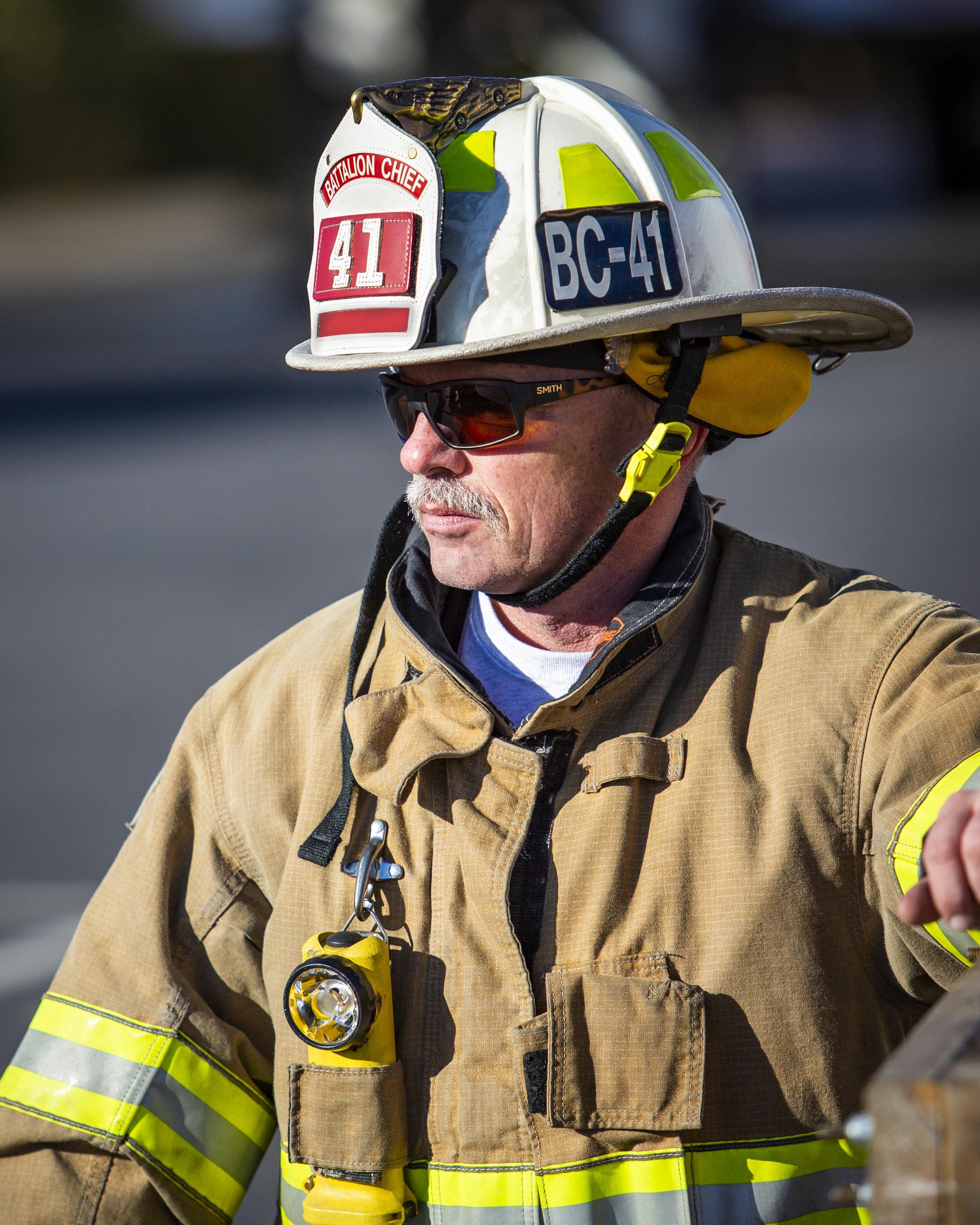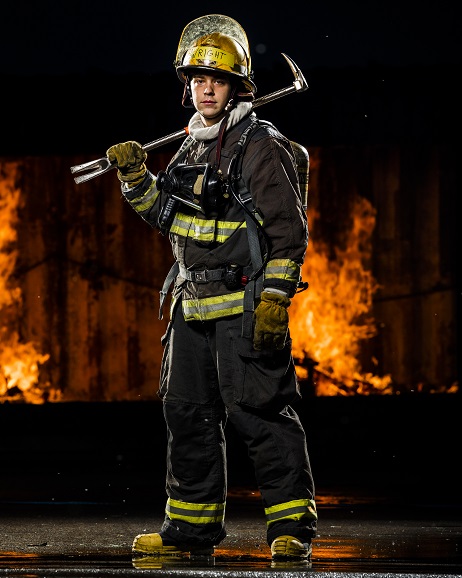The Bachelor of Science in Emergency Services Administration teaches students the knowledge, skills, and abilities needed in first responder, emergency, public safety, security, and disaster work. This degree provides students with competencies to participate professionally at the management through administrative level in mitigation, preparedness, response, and recovery from crises and disasters.
This program is also designed to further the career goals of current firefighters, police officers, and emergency medical professionals. Experiential credit may be accepted for relevant work experience.
Courses are available face to face or online to allow students to complete their education without interfering with their professional development. A degree can be earned in two or three years with the option to take classes during summer semesters.
Emergency Services Administration, B.S.
Critique major concepts, theoretical perspectives, empirical findings, and historical trends in emergency administration.
Assume administrative roles and responsibilities within emergency services and management.
Make ethical decisions in emergency services.
Communicate emergency information clearly in various formats.
Appraise vulnerabilities of diverse populations and infrastructures.

Will the Emergency Services program meet the educational requirements for the professional credential in the state or US territory you might choose to live during or after completing your UVU degree? Visit the UVU Professional Licensure website to learn more!
Those interested in the field of emergency medical can receive certifications to become Emergency Medical Responders (EMR), Emergency Medical Technicians (EMT), Advanced Emergency Medical Technicians (AEMT), and Paramedics.
Throughout the process of receiving certifications, students can be working to complete various associate degrees and a bachelor’s degree in Emergency Services Administration.
Upon completion of each certification, a student has the opportunity to seek full-time employment or to continue their education. Each certification is stackable meaning they build off one another. Class schedules are also designed to help a student continue their education while still working.
Those interested in pursuing a career as a firefighter can become a structural firefighter through the Firefighter Recruit Candidate Academy, a wildland firefighter through the Wildland Firefighter Incident Qualification Course, or both.

Students will engage in approximately 350 hours of fireground training and 300 hours of prerequisite coursework during the semester they are enrolled in the Recruit Candidate Academy (RCA).
Graduates will obtain the four required certifications for entry-level firefighters: Firefighter 1, Firefighter 2, Hazmat Materials Awareness, and Hazmat Materials Operations which are accredited through the Pro-Board and IFSAC. Those who complete the academy will also receive 16 academic credits that can be applied towards an associate or bachelor degree.
Designed to meet the Wildland Firefighter I knowledge and skill requirements of NFPA 1051, Wildland Fire Fighter Professional Qualifications. Teaches students to recognize the "Situations That Shout Watchout," apply the appropriate Standard Fire Orders and how to deploy a fire shelter. Includes orientation to the Incident Command System. Teaches basic fireline construction, fire weather, and fire behavior.
Students who complete various UVU wildland fire classes, can apply for a paid summer internship with our partner, Utah Forestry Fire & State Lands. Interns will be assigned to crews that perform firefighting and fire mitigation work throughout Utah and surrounding states. During 2009, 20 interns were selected and participated in a large number of skill and knowledge-building projects and incidents. This program is very physically and mentally demanding. Students will be saving lives, property, and the environment, if that's not the epitome of engaged learning, we don't know what is!
If strenuous, adrenaline pumping outdoor team activities coupled with the desire to interact with nature at its best and worst are attractive to you, check out the Lone Peak website for information, pictures and videos.
For program admissions and other information contact Dan Cather at [email protected].
The Minor in Homeland Security is an interdisciplinary learning opportunity for fostering the knowledge, skills, and abilities associated with public and private positions relating to homeland security. The program is structured for students across different academic disciplines desiring a richer understanding and an academic credential specific to homeland security. The purpose of the minor is to broaden the learner’s understanding of homeland security to complement their chosen field of study, such as criminal justice, cybersecurity, emergency management, emergency services, and national security studies, or take a combination of classes in any or all of the four areas. Those pursuing this minor will grow in their critical thinking and decision-making skillset. In addition, the program hones the learner’s ability to communicate through the written word, function, and produce deliverables within a virtual/remote environment, discover pertinent usable intelligence within large amounts of data, and gist information for building succinct briefings.
Examine the major concepts, theoretical perspectives, empirical findings, and historical trends in homeland security.
Apply critical and creative thinking, skeptical inquiry, and problem-solving for decisions in homeland security.
Respect the complexity of socio-cultural and international diversity in homeland security.
The Emergency Management Certificate of Proficiency is designed to meet the needs of students aspiring for a career in emergency management and/or disaster assistance at the local, regional, state, or national level.
Emergency Management Certificate
Protect life, property, and the environment through communication, collaboration, and coordination with stakeholders.
The Graduate Certificate in Emergency Management and Homeland Security Administration is intended to academically credential current and aspiring public safety and emergency services leadership. The certificate concentrates on the safety and security planning aspects of mid and senior level public safety and emergency services leaders. The certificate is structured to hone the knowledge, skills, and abilities of the public safety and emergency services administrator in the areas of disaster assessment, emergency planning and response, vulnerability, and homeland security. The purpose of the certificate is to offer both a standalone graduate credential to Utah’s public safety and security community, as well as an additional credential for those pursuing a Master in Public Administration, that concentrates on the community-facing roles and responsibilities of public safety and emergency services leaders.
Emergency Management Graduate Certificate
Demonstrate application of the major concepts, theoretical perspectives, empirical findings, and historical trends in emergency management and homeland security.
Make ethical decisions in the fields of emergency management and homeland security using skeptical inquiry, critical and creative thinking, and problem-solving skills.
Use risk assessment and analysis to decrease the vulnerabilities of diverse populations and infrastructure within disasters.